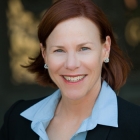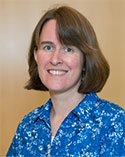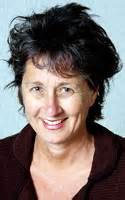PL 1: Opening Plenary Session
Sunday, August 10, 2014, 5:00PM – 6:30PM
Memorial Auditorium
Presider: Jill Baron, ESA President
Keynote Speaker: Margaret “Meg” Caldwell: Director, Environmental and Natural Resources Law & Policy Program; Executive Director, Center for Ocean Solutions, Woods Institute for the Environment
“Living in a world where 1+1=4: aligning the law, science, and practice of multiple stressors in marine ecosystems.”
 Margaret “Meg” Caldwell, JD ’85, has dedicated her career to environmental law, having worked as an attorney, professor, and board member in the field. Her scholarship has focused on the environmental effects of local land use decisions, the use of science in environmental and marine resource policy development and implementation, and developing private and public incentives for natural resource conservation. In addition to her role as lecturer in law, Caldwell directs the Environmental and Natural Resources Law and Policy Program at the law school. Caldwell also has an appointment with the Woods Institute for the Environment where she serves as executive director of the Center for Ocean Solutions. The center is in collaboration between Stanford, the Monterey Bay Aquarium, and the Monterey Bay Aquarium Research Institute whose core mission is to increase the impact of the natural, physical and social sciences on ocean policy and management.
Margaret “Meg” Caldwell, JD ’85, has dedicated her career to environmental law, having worked as an attorney, professor, and board member in the field. Her scholarship has focused on the environmental effects of local land use decisions, the use of science in environmental and marine resource policy development and implementation, and developing private and public incentives for natural resource conservation. In addition to her role as lecturer in law, Caldwell directs the Environmental and Natural Resources Law and Policy Program at the law school. Caldwell also has an appointment with the Woods Institute for the Environment where she serves as executive director of the Center for Ocean Solutions. The center is in collaboration between Stanford, the Monterey Bay Aquarium, and the Monterey Bay Aquarium Research Institute whose core mission is to increase the impact of the natural, physical and social sciences on ocean policy and management.
Caldwell is a regular in Washington, D.C. and Sacramento alike, working with elected officials, ocean and coastal agencies and their stakeholders to tackle major challenges with practical approaches. She has testified in Congress regarding reauthorization of the National Marine Sanctuaries Act and the ecological and economic impacts of the BP Deepwater Horizon Oil Disaster. She also served as a senior consultant to the National Commission on the BP Deepwater Horizon Oil Spill and Offshore Drilling, providing both oral testimony and written reports to the commission on recommendations to reform federal oversight of offshore oil exploration and drilling.
A well-respected figure in environmental law, she was selected as the chair of the California Coastal Commission and served on that body for nearly three years. While chair of the commission, Caldwell also served on the board of the California Coastal Conservancy. She was appointed by the California secretary for natural resources to the Marine Life Protection Act Blue Ribbon Task Force for the central, north central, and south coast study regions and is currently serving on the Blue Ribbon Task Force for the north coast. Before joining the Stanford Law School faculty in 1994, Caldwell was an instructor at San Jose State University and the University of California, Davis; counsel for MicroCLEAN, Inc.; a member of the City of Saratoga Planning Commission; and an associate in the environmental law group of McCutchen, Doyle, Brown & Enersen.
PL 2: Scientific Plenary and ESA Awards Session
Monday, August 11, 2014, 08:00AM – 10:00AM
Memorial Auditorium
Presider: Jill Baron, ESA President
Keynote Speaker: Kathy Cottingham, Dartmouth College
“Wearing an ecologist’s hat and facing a world of change”
 In this talk, Kathy Cottingham will explore the premise that ecological tools and approaches can be put to use well beyond the domain traditionally considered part of the discipline. Building on her recent work in freshwater and ecosystem ecology, Cottingham will demonstrate how an ecological approach can also be used to tackle questions in public environmental health, and suggest several areas in which ecologists might be able to make substantive contributions during the next decade.
In this talk, Kathy Cottingham will explore the premise that ecological tools and approaches can be put to use well beyond the domain traditionally considered part of the discipline. Building on her recent work in freshwater and ecosystem ecology, Cottingham will demonstrate how an ecological approach can also be used to tackle questions in public environmental health, and suggest several areas in which ecologists might be able to make substantive contributions during the next decade.
Brief Biography:
Kathy Cottingham is a professor of biological sciences at Dartmouth College with broad interests in ecology and its applications to environmental health. She did her undergraduate work at Drew University, where she majored in mathematics, biology, lacrosse and field hockey. As a graduate student at the University of Wisconsin at Madison, she studied the effects of nutrient enrichment and food web structure on freshwater plankton communities using a combination of modeling, mesocosms, and whole-lake experiments. Cottingham was fortunate to be among the first cohort of postdoctoral researchers at the National Center for Ecological Analysis and Synthesis in Santa Barbara, California, where she conducted independent research on early warning indicators and participated in the “Intrinsic and extrinsic variability in community dynamics” and Analysis of relationships between productivity and diversity“ working groups. She took a faculty position at Dartmouth in 1998 and began teaching courses in ecology and biostatistics while continuing to conduct research on freshwater plankton. Over the past decade, her research program has expanded to include projects in environmental microbiology, epidemiology, and public environmental health. Cottingham’s current research projects include investigating the causes and consequences of cyanobacterial blooms in low nutrient lakes and quantifying arsenic exposure via food and water in the U.S. population.
PL 3: Recent Advances Lecture
Wednesday, August 13, 2014, 12:15PM – 01:15PM
Sacramento Convention Center, Rm 202
Presider: Hal Balbach, ESA Program Chair
Guest Lecturer: Julie Guthman, University of California, Santa Cruz
“Back to the land? On the paradoxes of certified organics for agricultural transformations”
 Julie Guthman will discuss recent trends in the growth of certified organics and what they indicate for transforming agriculture. While believing that organic agriculture is a better way to farm, she will show how the political economy of certified organic has begun to thwart growth in the sector and is thus working against widespread transitions to more ecologically sound production practices. Her talk may thus cast doubt on the idea of getting the standard right and suggest other roads to ecological agriculture besides voluntary labels and standards.
Julie Guthman will discuss recent trends in the growth of certified organics and what they indicate for transforming agriculture. While believing that organic agriculture is a better way to farm, she will show how the political economy of certified organic has begun to thwart growth in the sector and is thus working against widespread transitions to more ecologically sound production practices. Her talk may thus cast doubt on the idea of getting the standard right and suggest other roads to ecological agriculture besides voluntary labels and standards.
Brief Biography:
Julie Guthman is a geographer and professor of social sciences at the University of California at Santa Cruz where she teaches courses primarily in global political economy and the politics of food and agriculture. Since receiving her PhD in 2000 in Geography from the University of California at Berkeley, she has published extensively on contemporary efforts to transform the way food is produced, distributed, and consumed, with a particular focus on voluntary food labels, community food security, farm-to-school programs, and the race and class politics of “alternative food.” Her first book, Agrarian Dreams: the Paradox of Organic Farming in California, (University of California, 2004), won the Frederick H. Buttel Award for Outstanding Scholarly Achievement from the Rural Sociological Society and the Donald Q. Innis Award from the Rural Geography Specialty Group of the Association of American Geographers. Her recent book, Weighing In: Obesity, Food Justice, and the Limits of Capitalism (University of California, 2011) was awarded the 2012 James M. Blaut Innovative Publication Award from the Cultural and Political Ecology Specialty Group of the Association of American Geographers and the 2012 Book Award from the Association for the Study of Food and Society. Her newest research is examining how knowledge of the health effects of soil fumigants is shaping grower adoption of and farmworker perspectives on alternatives to methyl bromide in California’s strawberry industry.